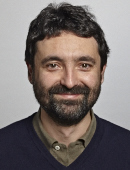
Paolo Cravedi, MD
About Me
Paolo Cravedi, MD, PhD, is an Associate Professor in the Division of Nephrology in the Department of Medicine and the Director of the Translational Transplant Research Center (TTRC). Dr. Cravedi is a scientist physician with a strong interest in kidney transplantation and autoimmune glomerular diseases. His initial studies have contributed to defining the organ allocation system currently used in many countries around the world. Dr. Cravedi was involved in the design and implementation of the first mechanistic clinical studies testing the safety/efficacy profile of B cell depletion in subjects with membranous nephropathy or focal segmental glomerulosclerosis (FSGS).
In 2011, Dr. Cravedi joined Icahn School of Medicine at Mount Sinai, where he started working on the effects of complement and erythropoietin in adaptive immune response. He is interested in implementing new technologies to study alloimmune responses and, more recently, his work has been testing the immune effects of fasting in transplantation.
p.p1 {margin: 0.0px 0.0px 6.0px 0.0px; text-align: justify; font: 12.0px Arial}Language
English
Position
ASSOCIATE PROFESSOR | Medicine, Nephrology
Publications
Selected Publications
- B-Cell Depletion in Glomerular Diseases: Not Always as Safe as We May Think. Decimo Silvio Chiarenza, Enrico E. Verrina, Carolina Bigatti, Gianluca Caridi, Agnese Spennacchio, Xhuliana Kajana, Massimiliano De Bortoli, Paolo Cravedi, Andrea Angeletti. Kidney Medicine
- Erythropoietin prolongs graft survival in mice by counteracting trained immunity. Sofia Bin, Barbara Franchin, Irene Ramos, Marina Iskhakova, Johan Noble, Chiara Cantarelli, Nina Goerlich, Leonardo V. Riella, Jamil R. Azzi, Jordi Ochando, Paolo Molinari, Gaetano La Manna, Paolo Cravedi. American Journal of Transplantation
- Short-term glyco-editing during machine perfusion permits ABO-incompatible transplantation in a human decedent model. Paolo Cravedi, Giuseppe Castellano, James M. Gardner. American Journal of Transplantation